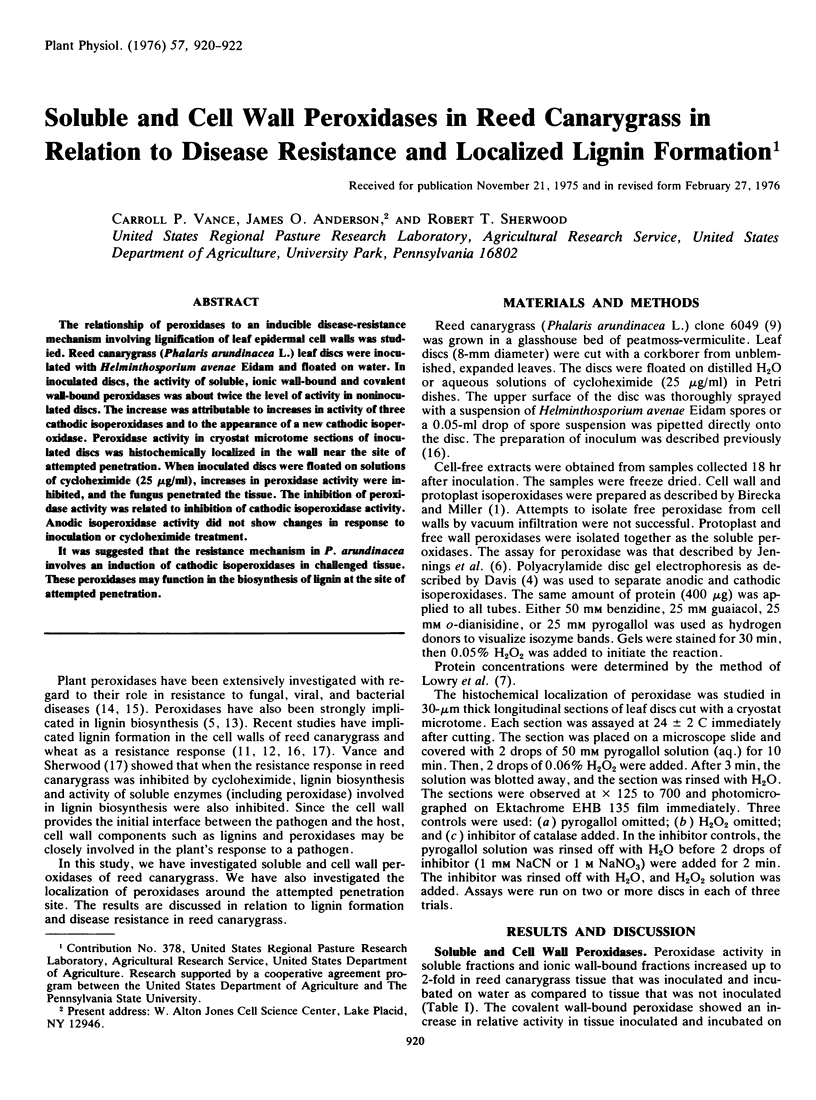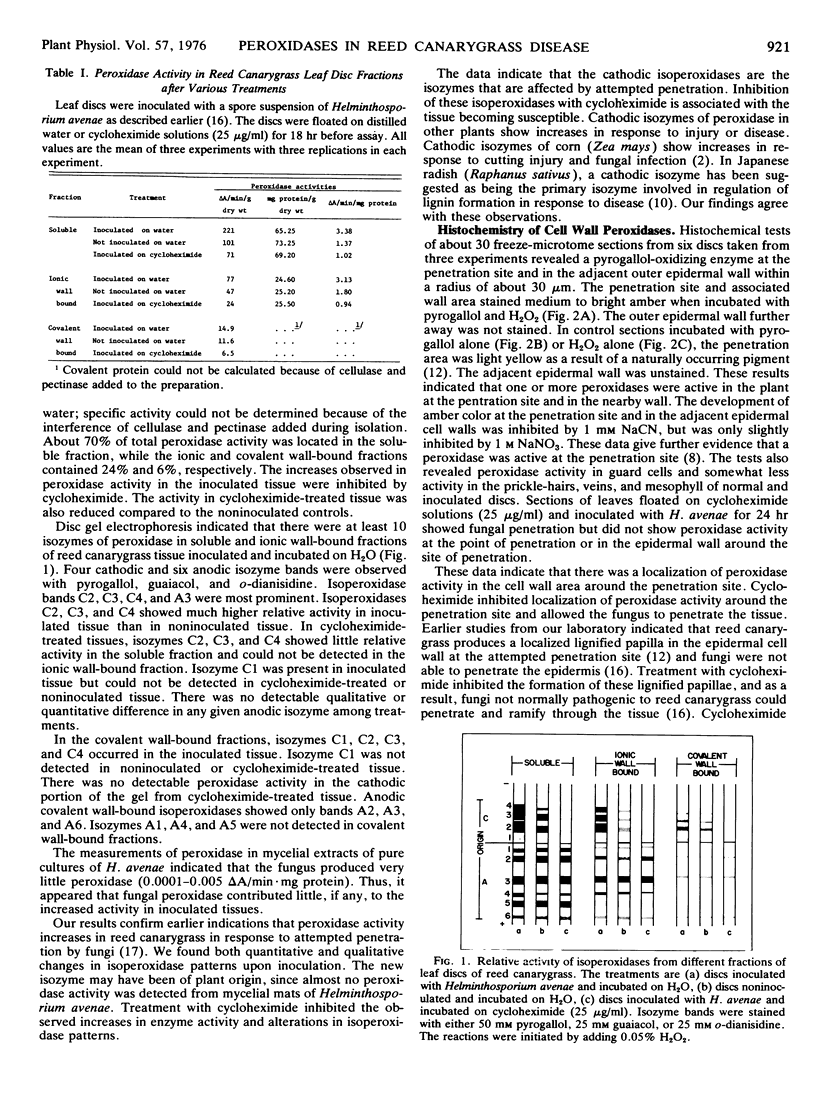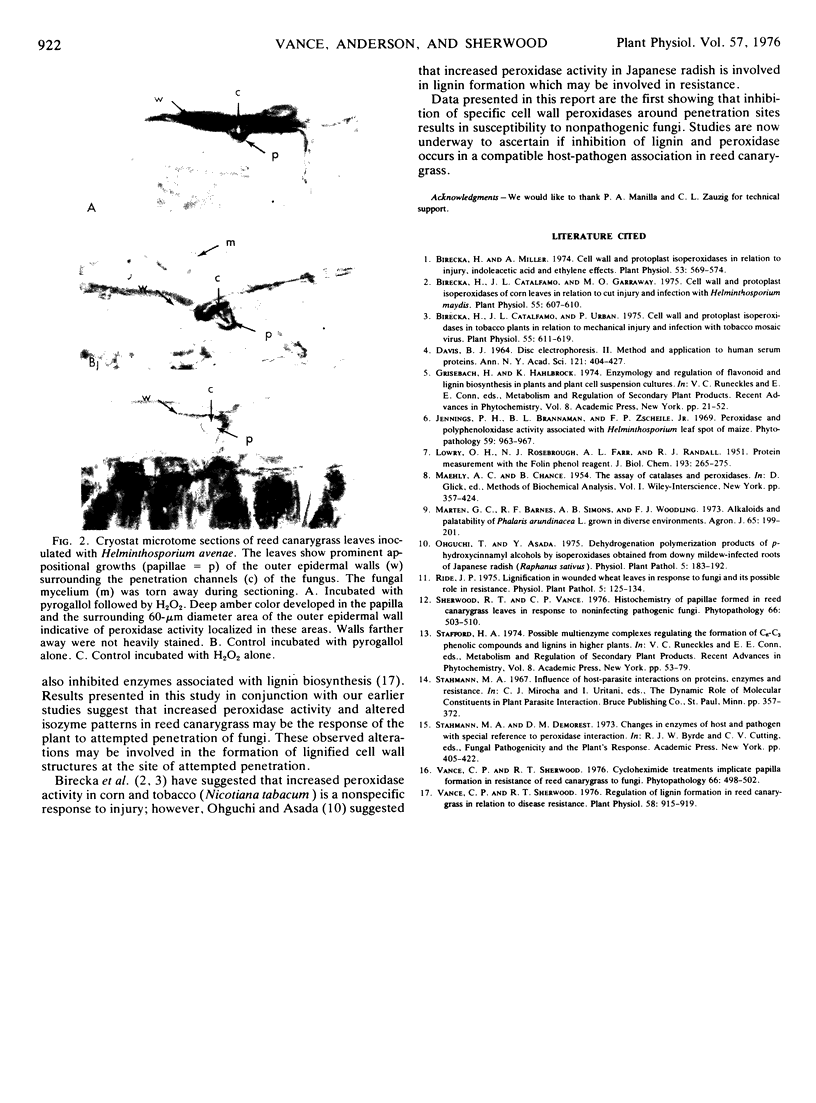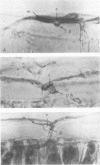Abstract
The relationship of peroxidases to an inducible disease-resistance mechanism involving lignification of leaf epidermal cell walls was studied. Reed canarygrass (Phalaris arundinacea L.) leaf discs were inoculated with Helminthosporium avenae Eidam and floated on water. In inoculated discs, the activity of soluble, ionic wall-bound and covalent wall-bound peroxidases was about twice the level of activity in noninoculated discs. The increase was attributable to increases in activity of three cathodic isoperoxidases and to the appearance of a new cathodic isoperoxidase. Peroxidase activity in cryostat microtome sections of inoculated discs was histochemically localized in the wall near the site of attempted penetration. When inoculated discs were floated on solutions of cycloheximide (25 μg/ml), increases in peroxidase activity were inhibited, and the fungus penetrated the tissue. The inhibition of peroxidase activity was related to inhibition of cathodic isoperoxidase activity. Anodic isoperoxidase activity did not show changes in response to inoculation or cycloheximide treatment.
It was suggested that the resistance mechanism in P. arundinacea involves an induction of cathodic isoperoxidases in challenged tissue. These peroxidases may function in the biosynthesis of lignin at the site of attempted penetration.
Full text
PDF


Images in this article
Selected References
These references are in PubMed. This may not be the complete list of references from this article.
- Birecka H., Catalfamo J. L. Cell Wall and Protoplast Isoperoxidases of Corn Leaves in Relation to Cut Injury and Infection with Helminthosporium maydis. Plant Physiol. 1975 Apr;55(4):607–610. doi: 10.1104/pp.55.4.607. [DOI] [PMC free article] [PubMed] [Google Scholar]
- Birecka H., Catalfamo J. L. Cell wall and protoplast isoperoxidases in tobacco plants in relation to mechanical injury and infection with tobacco mosaic virus. Plant Physiol. 1975 Apr;55(4):611–619. doi: 10.1104/pp.55.4.611. [DOI] [PMC free article] [PubMed] [Google Scholar]
- Birecka H., Miller A. Cell wall and protoplast isoperoxidases in relation to injury, indoleacetic Acid, and ethylene effects. Plant Physiol. 1974 Apr;53(4):569–574. doi: 10.1104/pp.53.4.569. [DOI] [PMC free article] [PubMed] [Google Scholar]
- DAVIS B. J. DISC ELECTROPHORESIS. II. METHOD AND APPLICATION TO HUMAN SERUM PROTEINS. Ann N Y Acad Sci. 1964 Dec 28;121:404–427. doi: 10.1111/j.1749-6632.1964.tb14213.x. [DOI] [PubMed] [Google Scholar]
- Jennings P. H., Brannaman B. L., Zscheile F. P., Jr Peroxidase and polyphenol oxidase activity associated with Helminthosporium leaf spot of maize. Phytopathology. 1969 Jul;59(7):963–967. [PubMed] [Google Scholar]
- LOWRY O. H., ROSEBROUGH N. J., FARR A. L., RANDALL R. J. Protein measurement with the Folin phenol reagent. J Biol Chem. 1951 Nov;193(1):265–275. [PubMed] [Google Scholar]
- Vance C. P., Sherwood R. T. Regulation of lignin formation in reed canarygrass in relation to disease resistance. Plant Physiol. 1976 Jun;57(6):915–919. doi: 10.1104/pp.57.6.915. [DOI] [PMC free article] [PubMed] [Google Scholar]



